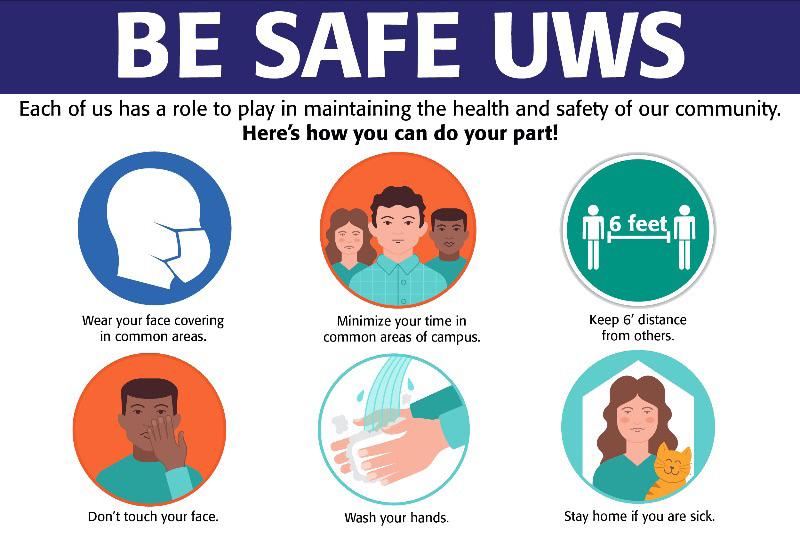
4 minute read
Feature Story: Core Values
University of Western States Core Values
Untitled-1 1
6/3/20 2:54 PM
In 2019, University of Western States (UWS) launched an initiative to better define its core values as a forward-thinking health science university. Core values are fundamental concepts that support the UWS mission and goals, shape the campus culture and exemplify the university’s brand and identity. In short, the formal exploration of core values helps the campus answer the questions, “Why do we do what we do at UWS?” and “What values do we want to personify to create an exceptional workplace and educational environment?”
Guided by the university motto, “for the good of the patient,” the initiative focused on engaging faculty and staff in identifying core values that make UWS a unique place to work and learn. A task force was convened to formulate the key core values of the university based on input from employee focus group sessions led by Executive Vice President Rosalia Messina, EdD, MPA, and Vice President for Academic Affairs Dana Sims, PhD.
“The core values will assist us promoting cohesion on our new campus by guiding us on how we want to treat each other, our students, our patients and our community,” Dr. Messina stated.
The university’s new core values will:
• Guide the recruitment, selection and evaluation of employees. • Integrate into strategic and operational planning processes. • Inform institutional decisions and the creation of institutional goals and objectives. • Be promoted internally and externally to help differentiate UWS from other colleges and universities.
Core Values Continued
• Student-Focus “We recognize our students have different needs, experiences and backgrounds, and it is our responsibility to listen to and represent their voices in all university decisions. We are committed to providing the best student experience possible at UWS and are working to create more opportunities to hear their feedback and implement positive changes within all of our academic and co-curricular programs.”
– Directors of Student Services, Jenna Geracitano (On-Campus Students) and Rachel Hasse (Online Students)
• Professionalism “Ethical behavior, discipline, self-regulation and professional demeanor are essential to the development of professionalism in health care providers, health care organizations and health care educational institutions. This produces increased trust; improved patient safety, satisfaction, and health care outcomes; and better health care education institutions. The end result ultimately elevates the needs of the patient above all else.”
– Associate Dean, Clinical Internship Stanley Ewald, DC, MPH, MEd and Dean, College of Chiropractic Kathleen Galligan, DC • Best Practices “In the library, the core of our work is helping students to access and integrate high quality, peer-reviewed research evidence into their coursework and clinical experiences. Our librarians are embedded within evidence informed practice (EIP) courses throughout the DC program and partner with programs in the College of Graduate Studies to facilitate their students’ knowledge and use of information resources. When we make any changes in the library, it is always based on evidence, such as best practices from peer libraries and academic institutions and data gathered from student and faculty feedback. With the coronavirus epidemic, we have made operational plans based on best practices established by the CDC and with information from the governor’s office, in conjunction with the Oregon Health Authority; we have also been relying on the REALM project, a multi-partner initiative that involves lab testing of common library materials, to inform our practices around materials handling.”
– University Librarian, Stephanie Debner, MA, MLIS, AHIP
• Whole-Person Health “Whole-person health requires whole-hearted commitment, an ongoing willingness to stretch beyond our previous best efforts. The classic self-care triad of whole-food nutrition, movement/exercise and stress management provides the needed foundation. But achieving optimal whole-person health also requires us to recognize the crucial roles of healthy social relationships, meaningful work and/or service to others, and acting on our innate desire to be part of something larger than ourselves.”
– Human Nutrition and Functional Medicine Director, Daniel Redwood, DC, and Associate Director, Chris Browne, DC, MS • Curiosity “Curiosity is vital not only to research but to our entire organization. It allows us to explore different ideas and cultures. It makes us more knowledgeable and increases our appreciation for life. Within research, curiosity drives our desire to understand what we don’t know, forever increasing our personal and professional knowledge, making it an appreciated and treasured core value at UWS.” – IRB Administrator/Director of Scholarly Activity, Leslie Takaki, MS • Inclusivity “Each person in our community brings their full selves, including all the aspects of their layered identities, to their work and study at UWS. When we embody the value of inclusion, we see and value the experiences and background of each person, recognize the richness generated by our differences, and celebrate the similarities and shared humanity among us.”
– Vice President for Academic
Affairs, Dana Sims, PhD, and
Associate Vice President of
Student and University Affairs,
Elena Howells










